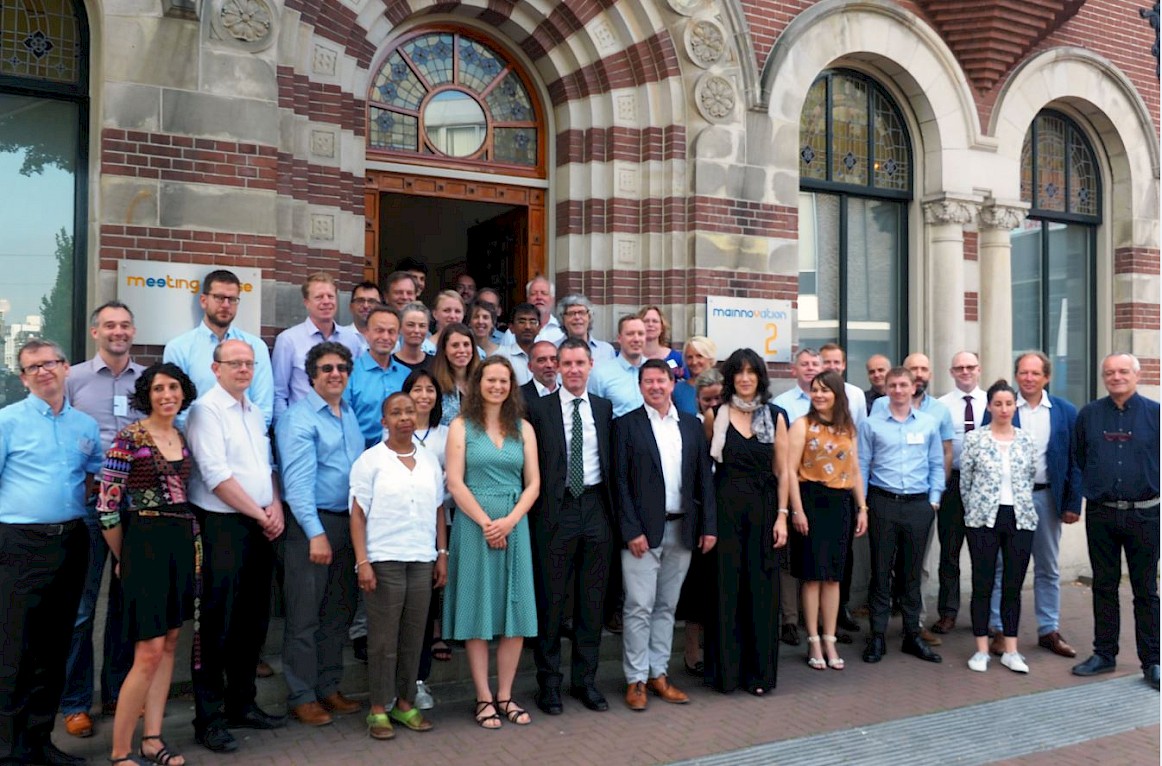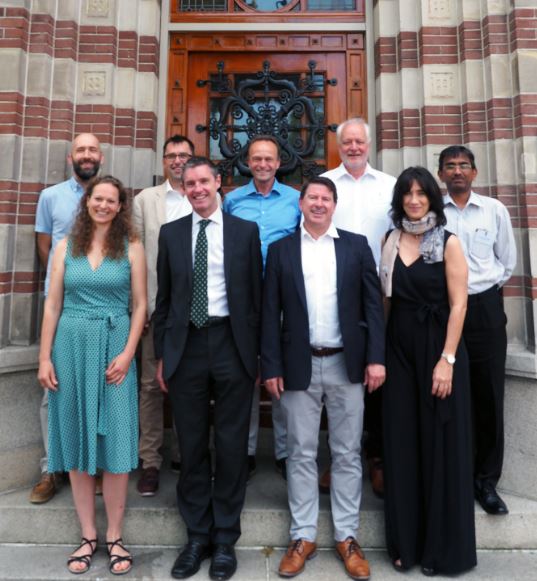OSPAR Commission meets in the Netherlands
PROTECTING AND CONSERVING THE NORTH-EAST ATLANTIC
Marine policy makers from around Europe gathered in the Netherlands for the annual meeting of the OSPAR Commission for the protection of the marine environment of the North-East Atlantic.
Delegates representing 13 countries from around the North-East Atlantic and the European Union, supported by 4 observer organisations, looked to the future challenges of ocean governance in preparation for the launch of OSPAR’s new strategy for the decade 2020-2030 at its Ministerial meeting to be held in Lisbon on 3rd July 2020.
A Recommendation on the reduction of marine litter through the Implementation of Sustainability Education Programmes for Fishers was adopted. The aim is to inspire fishers to contribute to marine litter prevention efforts and to support a responsible, sustainable and successful fishing industry. The meeting also adopted three updated Recommendations governing the use of chemicals used in the offshore industry.
Further progress was made through Norway and the United Kingdom’s nomination of 31 new Marine Protected Areas (MPAs), which brings the total number of MPAs in the OSPAR network to 496, protecting 6.4% of the OSPAR Maritime Area.
OSPAR Chair, Richard Cronin (Ireland), said that it was an honour to chair the OSPAR Commission’s 2019 meeting and that Contracting Parties should “prepare for the challenges facing us and the oceans in the years to come”.
Ane-Marie Løvendahl Raun (Denmark) was elected vice-Chair of OSPAR to complement John Clorley (United Kingdom) who was elected as vice-Chair in 2018.
ENDS

 Note for editors
Note for editors
1. Photo above shows OSPAR delegates and observers.
2. Photo left shows OSPAR's group of Chairs and Vice-Chairs. From left to Right: RSC Chair, Justin Gwynn (Norway); OSPAR vice-Chair, Ane-Marie Løvendahl Raun (Denmark); HASEC Chair, Philip Axe (Sweden); OSPAR Chair, Richard Cronin (Ireland); EIHA Chair, Lex Oosterbaan (the Netherlands); OSPAR vice-Chair, John Clorley (United Kingdom); BDC Chair, Jeroen Vis (the Netherlands); OSPAR Executive Secretary, Susana Salvador; OIC Chair, Sarvan Marappan (United Kingdom).
3. The OSPAR Commission was set up by the 1992 OSPAR Convention for the Protection of the Marine Environment of the North-East Atlantic, which unified and updated the 1972 Oslo and 1974 Paris Conventions. It brings together the governments of Belgium, Denmark, Finland, France, Germany, Iceland, Ireland, Luxembourg, the Netherlands, Norway, Portugal, Spain, Sweden, Switzerland and the United Kingdom, together with the European Community.
4. More than 30 international non-governmental organisations are involved in OSPAR as official Observers. They represent a broad range of interests and expertise related to the marine environment and the uses of marine resources. Many contribute information, insights and standpoints. This is much appreciated feedback from civil society and the economy. The OSPAR Commission greatly values these partnerships that help inform its decisions and other results. (See list on OSPAR website at http://www.ospar.org/organisation/observers).
5. The Recommendations adopted by OSPAR 2019 were:
OSPAR Recommendation amending OSPAR Recommendation 2006/3 on Environmental Goals for the Discharge by the Offshore Industry of Chemicals that Are, or Which Contain Substances Identified as Candidates for Substitution;
OSPAR Recommendation amending OSPAR Recommendation 2010/3 on a Harmonised Offshore Chemical Notification Format (HOCNF) (as amended by OSPAR Recommendation 2014/17);
OSPAR Recommendation amending OSPAR Recommendation 2017/1 on a Harmonised Pre-screening Scheme for Offshore Chemicals;
OSPAR Recommendation 2019/XX on the reduction of marine litter through the Implementation of Sustainability Education Programmes for Fishers.
